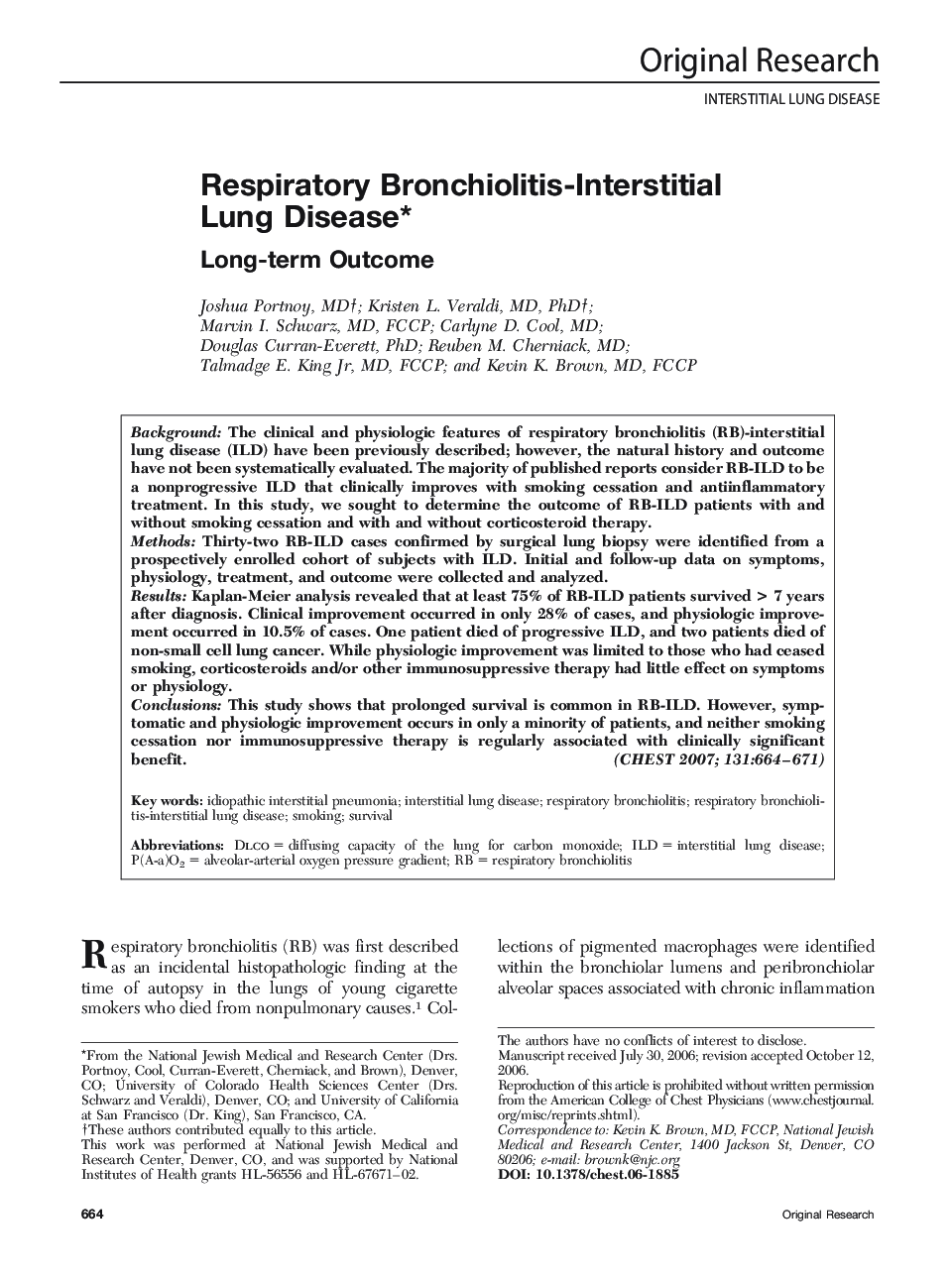| Article ID | Journal | Published Year | Pages | File Type |
|---|---|---|---|---|
| 2905226 | Chest | 2007 | 8 Pages |
Background:The clinical and physiologic features of respiratory bronchiolitis (RB)-interstitial lung disease (ILD) have been previously described; however, the natural history and outcome have not been systematically evaluated. The majority of published reports consider RB-ILD to be a nonprogressive ILD that clinically improves with smoking cessation and antiinflammatory treatment. In this study, we sought to determine the outcome of RB-ILD patients with and without smoking cessation and with and without corticosteroid therapy.Methods:Thirty-two RB-ILD cases confirmed by surgical lung biopsy were identified from a prospectively enrolled cohort of subjects with ILD. Initial and follow-up data on symptoms, physiology, treatment, and outcome were collected and analyzed.Results:Kaplan-Meier analysis revealed that at least 75% of RB-ILD patients survived > 7 years after diagnosis. Clinical improvement occurred in only 28% of cases, and physiologic improvement occurred in 10.5% of cases. One patient died of progressive ILD, and two patients died of non-small cell lung cancer. While physiologic improvement was limited to those who had ceased smoking, corticosteroids and/or other immunosuppressive therapy had little effect on symptoms or physiology.Conclusions:This study shows that prolonged survival is common in RB-ILD. However, symptomatic and physiologic improvement occurs in only a minority of patients, and neither smoking cessation nor immunosuppressive therapy is regularly associated with clinically significant benefit.
